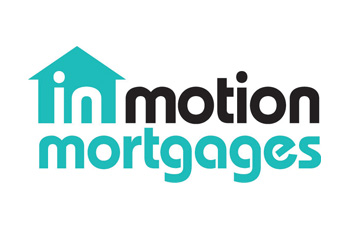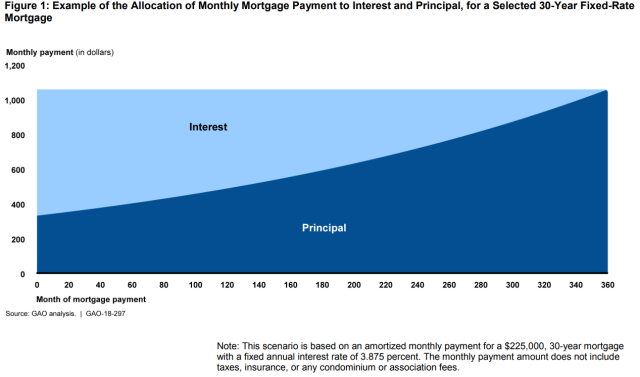What to Consider Before Applying for Equity Release Mortgages
What to Consider Before Applying for Equity Release Mortgages
Blog Article
Discovering the Various Types of Equity Release Mortgages Available Today
Equity Release mortgages present different alternatives for property owners aged 55 and over. equity release mortgages. These financial items deal with different requirements and preferences, allowing people to access funds from their residential or commercial property. From life time home loans to shared gratitude home mortgages, each kind supplies unique advantages. Recognizing these options is essential for making informed decisions. What elements should one take into consideration when selecting the most appropriate equity Release plan? The details that comply with might shed light on this vital topic
Understanding Equity Release Mortgages
Equity Release home mortgages provide house owners, commonly those aged 55 and over, with a method to access the value linked up in their property without requiring to sell it. This financial option permits people to transform a part of their home equity into cash, which can be used for numerous functions, such as home enhancements, repaying financial debts, or funding retirement.Equity Release can take different kinds, however it basically entails loaning versus the value of the home while maintaining ownership. Homeowners can select to obtain a round figure or a collection of smaller payments, depending upon their financial requirements and preferences.Additionally, the amount offered for Release is influenced by the building's worth, the homeowner's age, and specific lending institution criteria. Overall, comprehending equity Release mortgages is essential for home owners to make informed decisions concerning using their home's equity while taking into consideration the lasting effects.
Life time Mortgages
Life time mortgages stand for one of the most prominent kinds of equity Release. This economic product enables house owners, normally aged 55 or older, to borrow versus the worth of their residential property while retaining possession. The car loan, which is protected against the home, builds up passion over time yet does not need regular monthly repayments. Rather, the lending and built up rate of interest are paid off when the homeowner dies or relocates right into long-term care.Lifetime home loans provide flexibility, as debtors can pick to get a lump amount or choose a drawdown facility, accessing funds as required. Significantly, numerous strategies come with a no-negative-equity warranty, making sure that debtors will never owe greater than the worth of their home. This feature supplies satisfaction, allowing individuals to enjoy their retired life without the concern of diminishing their estate. Generally, life time home loans offer as a feasible choice for those seeking economic assistance in later life.
Home Reversion Program

Drawdown Lifetime Mortgages
While lots of home owners seek methods to access their wealth, drawdown life time mortgages present a flexible choice that allows individuals to Release funds gradually. This type of equity Release home loan allows homeowners to borrow against the value of their residential property while retaining ownership. Unlike typical lifetime home mortgages, drawdown plans allow borrowers to access a part of their equity upfront and withdraw extra funds as required, as much as a predetermined limit.This function can be especially useful for those that want to handle their financial resources very carefully, as it lessens interest buildup by only charging passion on the quantities drawn. Additionally, drawdown lifetime mortgages frequently come with a "no negative equity guarantee," guaranteeing that debtors will never ever owe even more than their home's worth. This choice suits retired people that want economic protection and adaptability, allowing them to satisfy unforeseen costs or keep their way of living without needing to market their residential or commercial property.
Boosted Life Time Mortgages
Enhanced Life time Home loans offer distinctive benefits for qualified property owners looking for to Release equity from their residential properties. Comprehending the qualification standards is necessary, as it identifies that can benefit from these specialized car loans. However, it is also vital to evaluate the potential drawbacks connected with enhanced choices, making certain a well-shaped viewpoint on their usage.
Qualification Criteria Clarified
Comprehending the eligibility criteria for Enhanced Life time Mortgages is essential for potential candidates looking for to access the equity in their homes. Normally, applicants have to be aged 55 or older, as this age need is common in the equity Release market. Homeowners need to possess a building valued at a minimal threshold, which can differ by loan provider. Importantly, the residential property should be their main home and in good condition. Lenders commonly analyze the home owner's health status, as particular health problems may enhance eligibility and advantages. Furthermore, candidates ought to not have existing substantial financial obligations protected against the building. Satisfying these requirements enables people to explore Boosted Life time Home loans as a feasible option for accessing funds bound in their homes.
Benefits of Boosted Home Mortgages
After clarifying the qualification standards, it comes to be apparent that Boosted Life time Home mortgages offer several significant advantages for property owners wanting to leverage their property equity. Mainly, they give access to a bigger financing quantity contrasted to typical life time mortgages, benefiting those with health conditions or age-related aspects that raise their life expectancy threat. This enhanced loaning ability permits homeowners to fulfill numerous economic demands, such as home improvements or retirement expenses. Additionally, these mortgages usually include versatile payment options, enabling customers to handle their finances extra successfully. The no-negative-equity warranty further ensures that home owners will certainly never ever owe greater than their building's worth, supplying satisfaction. Generally, Enhanced Lifetime Home mortgages present an engaging choice for eligible property owners seeking financial options.
Prospective Disadvantages Thought About
While Boosted Lifetime Mortgages supply many benefits, potential downsides require cautious consideration. One considerable problem is the effect on inheritance; the equity released reduces the value of the estate left to recipients. Additionally, these mortgages can build up considerable passion with time, resulting in a significant debt that may go beyond the initial car loan amount. There may additionally be constraints on property adjustments or rental, restricting home owners' flexibility. Improved items typically require details health and wellness conditions, implying not all home owners will certainly qualify. Ultimately, managing the fees and charges related to these mortgages can be complex, potentially resulting in unexpected prices. Consequently, individuals need to extensively analyze their situation and get in touch with economic advisors prior to continuing.
Shared Appreciation Home Loans
Shared Gratitude Mortgages represent a special economic plan that allows home owners to accessibility equity while sharing future building value enhances with the loan provider. This technique provides prospective benefits such as decreased month-to-month payments, yet it likewise features disadvantages that have to be meticulously taken into consideration. Understanding the qualification demands is important for those thinking about this choice.
Concept Introduction
Equity Release home loans, particularly in the kind of common gratitude home mortgages, supply property owners an one-of-a-kind economic service that permits them to access funds by leveraging the value of their home. In this setup, a lending institution offers a car loan to the house owner, which is typically repaid with a share navigate to this site of the residential property's future recognition in value. This implies that when the home owner offers the residential property or passes away, the lender obtains a portion of the enhanced value, instead than simply the first finance amount. Shared recognition home loans can be appealing for those seeking to supplement their revenue or money considerable costs while maintaining ownership of their home. However, the financial ramifications of common admiration should be thoroughly taken into consideration by potential consumers.
Downsides and advantages
Common recognition home mortgages can offer considerable economic benefits, they also come with noteworthy disadvantages that potential customers must think about. These home loans permit home owners to gain access to equity in their homes while sharing a portion of any kind of future admiration with the lender. This setup can be helpful during times of increasing home values, providing significant funds without month-to-month repayments. However, the main disadvantage is the prospective loss of equity; house owners might wind up with appreciably minimized inheritance for heirs. In addition, the complexity of the terms can lead to misunderstandings relating to payment obligations and the percentage of gratitude owed. It is necessary for consumers to consider these factors meticulously before dedicating to a shared recognition home loan.

Qualification Needs
What requirements must home owners meet to receive a common appreciation home mortgage? Primarily, prospects should go to least 55 years of ages, guaranteeing they are within the target demographic wikipedia reference for equity Release products. In addition, the residential property has to be their primary home and commonly valued above a specified minimum limit, typically around ? 100,000. Lenders likewise analyze the home owner's monetary conditions, consisting of income and arrearages, to establish they can take care of the home loan properly. Significantly, the building has to remain in excellent condition and devoid of considerable legal encumbrances. House owners should also have a clear understanding of the terms, including exactly how appreciation will be shared with the loan provider upon sale or transfer of the home, as this affects overall returns.
Picking the Right Equity Release Option

Regularly Asked Inquiries
What Age Do I Need to Be for Equity Release?
The age need for equity Release commonly begins at 55 for most plans. Some carriers may use options for those aged 60 and above, showing varying terms based on specific scenarios and loan provider plans.
Will Equity Release Influence My Inheritance?
Equity Release can influence inheritance, as the amount obtained plus rate of interest reduces the estate's worth. Heirs might receive much less than anticipated, relying on the home's appreciation and the complete debt at the time of passing.
Can I Move Residence With Equity Release?
The question of moving house with equity Release occurs often. Typically, people can transfer their equity Release strategy to a new residential property, but certain terms and conditions might apply, needing appointment with the loan provider for advice.
Are There Charges Linked With Equity Release Mortgages?
Fees connected with equity Release mortgages can that site consist of setup fees, appraisal costs, and lawful costs. Furthermore, there might be very early repayment fees, which can impact the total cost and monetary ramifications for the consumer.
Exactly How Does Equity Release Influence My Tax Obligation Situation?
Equity Release can impact one's tax obligation scenario by potentially increasing taxable earnings, as released funds are taken into consideration capital. However, it typically does not sustain instant tax obligation responsibilities, making it vital to speak with a monetary consultant for tailored advice.
Conclusion
In recap, the selection of equity Release mortgages offered today provides home owners aged 55 and over numerous pathways to access their residential or commercial property's worth - equity release mortgages. Whether selecting a life time mortgage, home reversion strategy, or various other options, each choice provides distinct benefits tailored to private monetary demands. Mindful consideration and assessment with a financial advisor are necessary to assure the chosen equity Release service lines up with monetary circumstances and individual goals, inevitably helping with educated decision-making for a safe and secure monetary future. Equity Release home loans existing numerous choices for home owners aged 55 and over. Equity Release home mortgages give homeowners, typically those aged 55 and over, with a way to access the value connected up in their home without requiring to sell it. Enhanced Life time Mortgages use distinctive benefits for qualified home owners looking for to Release equity from their residential properties. Equity Release home loans, specifically in the type of shared admiration mortgages, supply house owners a special economic option that permits them to accessibility funds by leveraging the value of their residential property. In recap, the range of equity Release home mortgages offered today offers house owners aged 55 and over multiple pathways to access their residential property's worth
Report this page